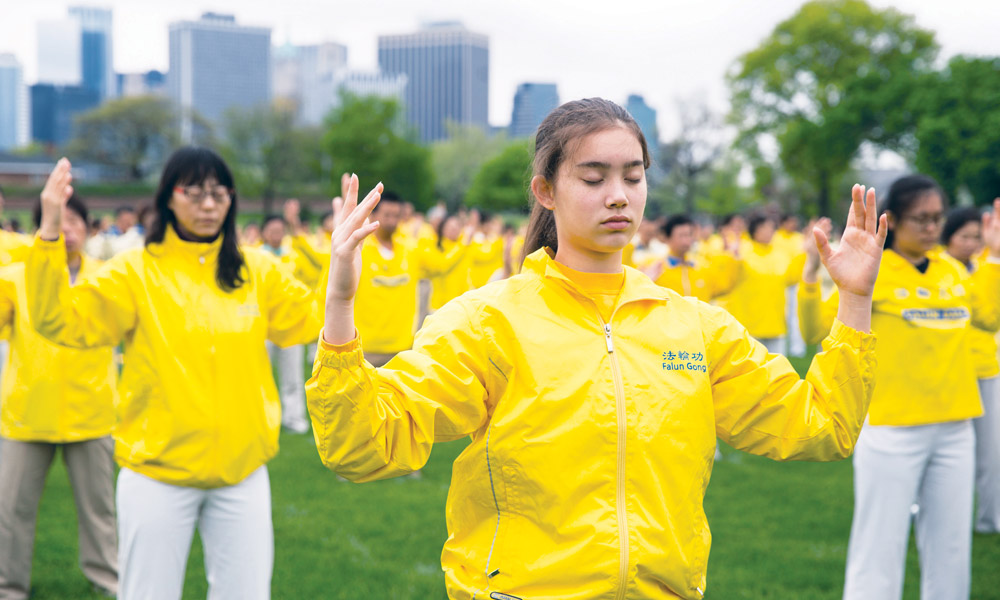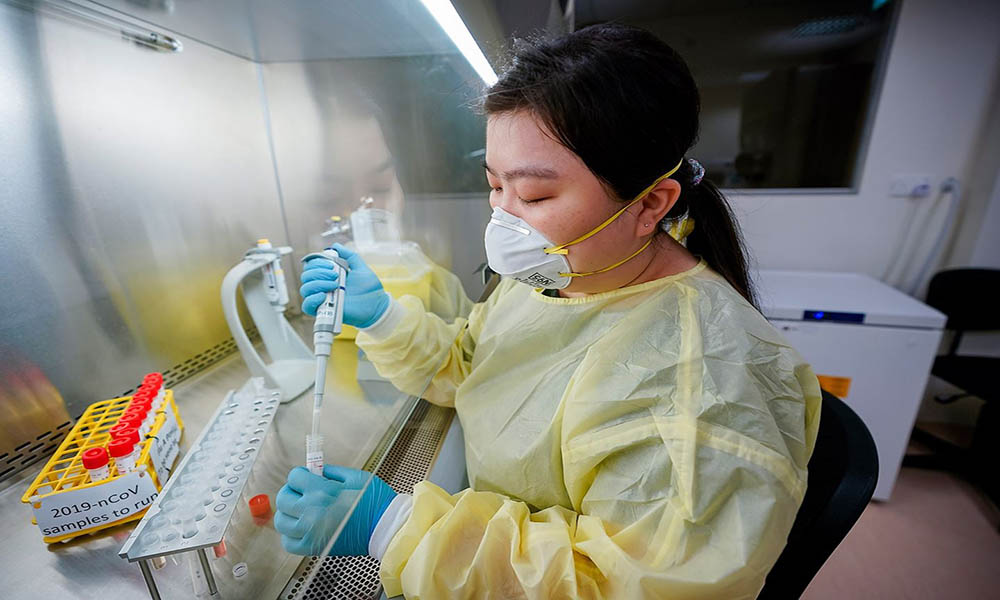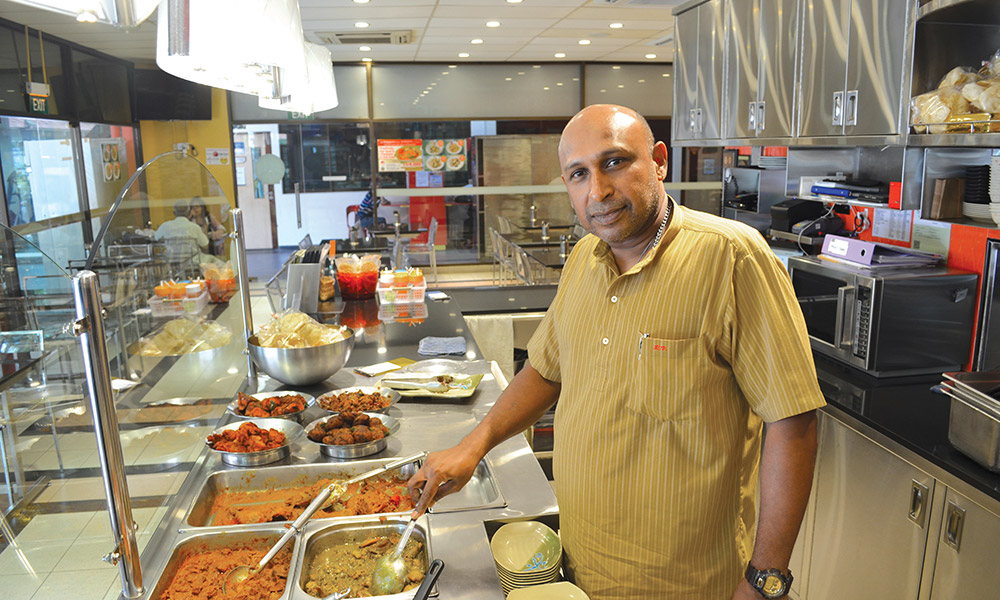By Vibrant Dot Staff
If you have watched period dramas, especially Chinese ones, you would often see wizened men cultivating in secluded misty mountains.
Perhaps you found yourself admiring their determination, but also wondered if all cultivation practices are solitary and mystical.
Improving Over 100 Million Lives
27 years ago, on May 13, Mr Li Hongzhi started giving public lectures in Changchun on how to be a good person aligned with truthfulness, compassion and forbearance. He also introduced five sets of gentle, meditative exercises to complement his teachings.
It might seem like a quiet start, but this was an unprecedented move. Falun Dafa (or Falun Gong), a cultivation practice in the Buddha school tradition, used to be passed down privately from one generation to the next, as per spiritual practices in the ancient Chinese tradition.
Only a year later, Falun Gong received the ‘Advancing Frontier Science’ award at Beijing’s Oriental Health Expo in December 1993. Mr Li Hongzhi was also conferred the title of ‘Most Acclaimed Qigong Master by the Masses’.
By 1998, a Chinese government survey determined that 70 million Chinese had adopted the practice, from farmers and scientists to students and high level officials.
In the same year, health and wellness surveys were conducted in Beijing, Wuhan, Dalian and Guangdong provinces to pinpoint Falun Gong’s popularity. 98% of the 31,000 Chinese Falun Gong practitioners surveyed experienced significant health improvements soon after they adopted the practice.
Researcher Peter Zhang explains the initial appeal of Falun Gong to the CCP as a health regime: “According to an article in a February 1999 issue of the US News & World Report, a senior China Sports Commission official said, ‘Falun Gong and other types of qigong can save each person 1,000 yuan in annual medical fees. If 100 million people are practising it, that’s 100 billion yuan [US$14.9 billion] saved per year in medical fees. Premier Zhu Rongji is very happy about that. The country could use the money right now.’”
Since then, Falun Gong is practised peacefully in over 80 countries, improving the lives of over 100 million practitioners. Globally, it has received multiple accolades for its positive contributions to society and public health. From UAE and Ethiopia to France and Peru, along with Singapore and her Asian neighbours, the spiritual practice transcends races and nationalities.
“Falun Dafa supports and encourages traditional culture… And that’s the reason why people are here, to show their own culture through the basic principles of the universe: truthfulness, compassion, tolerance,” said Oleksandr Nimenko, a practitioner from Ukraine. He was one of around 10,000 practitioners from 53 countries who participated in a grand parade in Manhattan, as the centrepiece event of World Falun Dafa Day celebrations three years ago.
In Singapore, Falun Gong is practised by both young and old from all walks of life, from professors to homemakers.
“My family and I have practised Falun Gong since I was 12. On top of improved health, I’m grateful to this practice for helping me lead a positive, purposeful and mindful life,” Claire Eng, an educator in her 30s from Singapore, attests.
“By letting go of jealousy and pursuit, I find myself enjoying the process more instead of being too attached to outcomes; I also aim to be truthful and kind in my daily life. Because of this, I sleep soundly and easily every day, and overcome obstacles quite well.”

Raising Awareness
Falun Gong is practised peacefully in over 80 countries, improving over 100 million lives. It has received multiple awards worldwide for its positive contributions to society and public health.
Today, World Falun Dafa Day is celebrated every May 13 worldwide to commemorate its founding, but it’s still persecuted in the country of its birth.
In the 1990s, Falun Gong’s meteoric rise received as much attention from the masses as it did ire from one man — then-president Jiang Zemin.
Watching the practice attract 70-100 million adherents in China within seven years, mainly by word of mouth, and fearing that the Chinese preferred its traditional moral teachings to the communist ideology of atheism and violence, Jiang launched a campaign on July 20, 1999 to eradicate Falun Gong.
Reports reveal Jiang’s personal jealousy of Falun Gong’s rapid growth, which he feared would eclipse that of the CCP’s. One party veteran said that by persecuting Falun Gong, “Jiang [was] forcing senior cadres to pledge allegiance to his line”.
Since 1999, the belligerent propaganda campaign to vilify Falun Gong has led to large numbers of practitioners imprisoned in China’s forced labour camps, where they are subject to torture and even live organ harvesting.
This involves murdering innocent people on demand for their organs — and this genocide is orchestrated by the state. This has been made possible by an entire state apparatus, military, and civilian medical establishments.
China’s official figure is 10,000 transplants per year. However, an 817-page June 2016 investigative report by three Nobel Peace Prize nominees estimated that as many as 60,000 to 100,000 transplants a year took place in China from 2000 to 2015.
The source is primarily non-consenting Falun Gong prisoners of conscience; Uyghurs, Tibetans and House Christians have also been killed for their organs.
To date, the CCP has not announced any official change to its persecution policy. This is despite the fact that earlier last year, the CCP significantly weakened the power of the deadly ‘610 Office’, an extra-legal party organisation similar to the Nazis’ Gestapo set up by Jiang to persecute Falun Gong.
Taking Action
Around the world, practitioners as well as righteous citizens and governments have been speaking up against the persecution of Falun Gong and taking action, particularly against forced organ harvesting.
Today, Israel, Spain, Italy and Taiwan ban transplant tourism by their nationals.
In the UK, 40 MPs from all parties are backing efforts to ban UK patients from travelling to China for transplant surgery, before the next inquiry into allegations of forced organ harvesting, The Guardian reports on April 1.
In Canada, Bill S-240 was passed unanimously in the Senate last October, which would make it a criminal offence in Canada to receive an organ abroad without consent from the donor; it would also make people involved in forced organ harvesting anywhere in the world inadmissible to Canada, reports Joan Delaney from The Epoch Times.
In 2016, the US House of Representatives unanimously passed House Resolution 343 (H.Res.343), which urged the Chinese government to stop harvesting the organs of prisoners of conscience and end the persecution against Falun Gong.
Likewise, the European Parliament passed a similar resolution six years ago.
In Singapore, to stop unthinking organ tourism, you can raise awareness by telling those around you about live organ harvesting in China as murder-on-demand, and direct them to http://www.stoporganharvesting.org/ to find out more.
You can also sign the Petition to the United Nations High Commissioner for Human Rights Calling for an Immediate End of Forced Organ Harvesting in China, and watch and share award-winning documentaries on the medical genocide here: https://endtransplantabuse.org/support/.
To read the full investigative report on live organ harvesting, visit https://endtransplantabuse.org/an-update/. For other ways to take action, visit https://endtransplantabuse.org/support/. To track the proceedings of the Independent Tribunal into Forced Organ Harvesting In China, visit https://chinatribunal.com/.
















